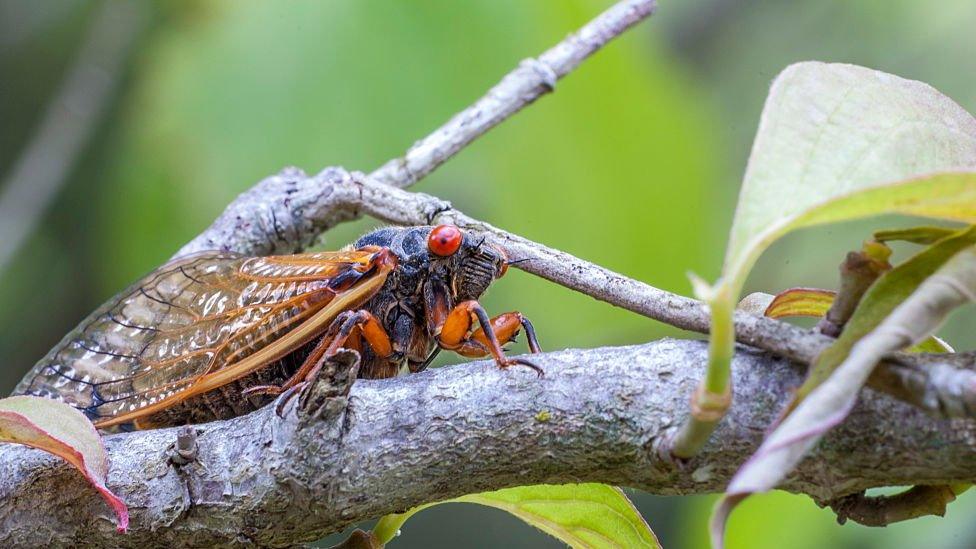US summer of cicadas: Billions of insects to burst from the ground in 221 year event
- Published
- comments

A 17-year periodical cicada up close
Billions of insects are predicted to burst out of the ground in the United States during late spring, in an event which hasn't happened for more than 200 years.
The red-eyed, winged insects called periodical cicadas, emerge in 13 to 17-year cycles and are completely harmless.
In 2024, two of these groups - called Brood XIII (meaning 13) and Brood XIX (19) - are predicted to burst from the ground together for the first time since 1803.
The US states of Wisconsin and Illinois will be mainly affected as billions of the bugs making a loud clicking noise will fill the air, cover branches, sign posts and pavements for about a month later this year.
Cicadas are among some of the longest-living insects in the world, but spend most of their lives living underground feeding on tree roots.
When they are ready to come to the surface, they build mud tubes - called a cicada hut - in the soil and crawl out to find a place to moult into their winged adult form.
As many as 1.5 million of the insects can come out of the ground per acre of land, meaning that tens of billions in total will emerge.
Once above ground, the insects live for just four to six weeks - one of the main reasons why they come out of the ground is to mate.
In order to attract females, male cicadas can make a loud clicking sound that has a noise level similar to a lawn mower or a passing jet plane.
The amount of eggs laid from adult cicadas can weigh down tree branches. Cicadas also feed on young trees and vines, and can cause significant damage in the process.
The University of Illinois says that: "When the cicadas start dying and dropping from the trees later in the spring, there are large numbers on the ground, and the odour from their rotting bodies is noticeable.
"In 1990, there were reports from people in Chicago having to use snow shovels to clear their sidewalks of the dead cicadas."
The next generation of Brood XIX will emerge from the ground in around 13 years in 2037, while Brood XIII has a 17-year cycle meaning they will re-emerge in 2041.
- Published17 May 2021
- Published21 July 2019
